Breast Augmentation in United Arab Emirates
Search and Compare the Best Clinics and Doctors at the Lowest Prices for Breast Augmentation in United Arab Emirates
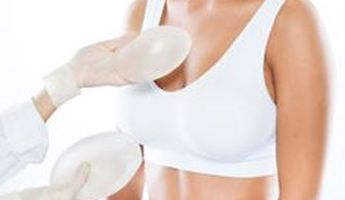
Find the best clinics for Breast Augmentation in United Arab Emirates
With Medijump you can browse 21 facilities offering Breast Augmentation procedures in United Arab Emirates. The cheapest price available is $2,484 in Abu Dhabi. And for the cheapest price globally, prices start from $208 in Hungary.
Breast Augmentation in Abu Dhabi
Price: $ 2,484
Breast Augmentation in Dubai
Price: $ 4,084
Hungary offers the best prices Worldwide
Price: $ 208
From 136 verified reviews
Sana tahir, 13 September 2020
Hi. I had my bariatric sleeve surgery in zulekha hosptial sharjah.. wich was done by Dr sajad ali mohammad ...and trust me it was my best experience with him the way he guided me from starting till I got discharged from the hospital...evry thing was clister clear to me from his end .. and best part after the surgery by him that i dint felt any pain dts really amazing...Thanks sooo soo much Dr sajad ali mohammad and nurse sheena for making my surgery journey comfortable.......d best dr of bariatric sleeve surgery...
- Home
- United Arab Emirates
Compare Before & After Photos of _procedure_photos.phpBreast Augmentation
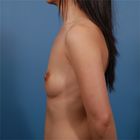

Full-side view
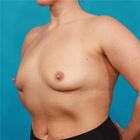
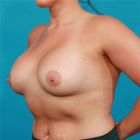
Half-side view
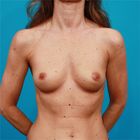
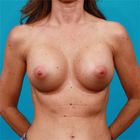
Front view
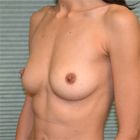

Half-side view
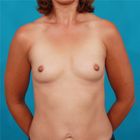
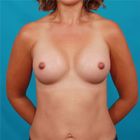
Front view
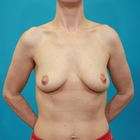
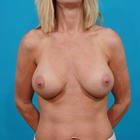
Front view
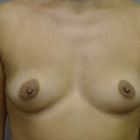
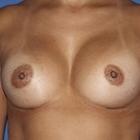
Front view
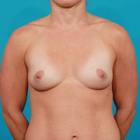
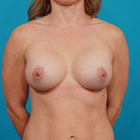
Front view
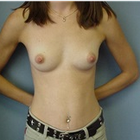
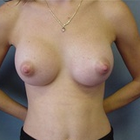
Front view
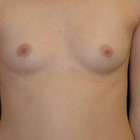
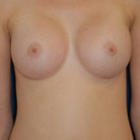
Front view
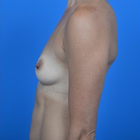
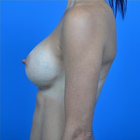
Full-side view
WHY US?
At Medijump, we're making medical easy. You can search, compare, discuss, and book your medical all in one place. We open the door to the best medical providers worldwide, saving you time and energy along the way, and it's all for FREE, no hidden fees, and no price markups guaranteed. So what are you waiting for?

Free

Best Price

Widest Selection

Risk-Free
What you need to know about Breast Augmentation in United Arab Emirates

Breast augmentation, also known as a Boob Job or Breast Enlargement, is a surgical procedure aimed at increasing breast size, enhancing shape, or improving symmetry. In United Arab Emirates, this procedure is carried out by board-certified plastic surgeons in accredited medical facilities, ensuring both safety and quality.
What is the cost of Breast Augmentation in United Arab Emirates?
Prices in United Arab Emirates are competitive, often offering savings without compromising on quality, especially when compared to costs in the US or Europe. However, factors such as surgeon’s fees, facility costs, and the type of implants affect the total cost.
What does a Breast Augmentation Procedure Involve?
The surgery involves placing breast implants under the breast tissue or chest muscles. Choices between saline or silicone implants can be made based on the desired feel and appearance. This is something your surgeon will discuss with you prior to even travelling.
How Long Should I Stay in United Arab Emirates for a Breast Augmentation Procedure?
The length of stay in United Arab Emirates for a Breast Augmentation is subject to various factors, such as your overall health, the specific nature of the procedure, and your individual recovery rate. Generally, Breast Augmentation surgery is an outpatient process, meaning you may be able to return home on the same day. However, a stay of up to two days might be necessary if your procedure is more intricate.
Although the hospital stay is relatively brief, it is advisable to remain in United Arab Emirates for at least one-week post-procedure. This timeframe allows for initial recovery and a follow-up appointment with the surgeon. Moreover, in the event of any complications, prompt medical assistance will be accessible. Thorough knowledge of the recovery process and its duration is crucial for proper preparation and managing stress during treatment.
What's the Recovery Time for Breast Augmentation Procedures in United Arab Emirates?
Post-surgery, a recovery period of one to two weeks is generally required, with follow-up visits to the surgeon. It's crucial to follow all post-op instructions for optimal healing.
Experiencing swelling and discomfort following the operation is normal, both of which should gradually alleviate with time. You will be required to wear a compression garment, take prescribed medications, and maintain a healthy lifestyle for an effective recovery.
What sort of Aftercare is Required for Breast Augmentation Procedures in United Arab Emirates?
Post-operative care is critical for the success of a Breast Augmentation. The initial recovery phase usually includes prescribed medications to alleviate pain and avert infection. Individuals can normally resume everyday activities within a few weeks, depending on their healing pace and bodily responses. However, it is advisable to refrain from vigorous activities for a minimum of six weeks post-procedure.
What's the Success Rate of Breast Augmentation Procedures in United Arab Emirates?
In United Arab Emirates, Breast Augmentation boasts a relatively high success rate, which contributes to its immense popularity among individuals seeking improvements in their physical appearance. Numerous patients have reported satisfaction and enhanced confidence after undergoing the procedure, making it a widely favoured cosmetic surgery.
Are there Alternatives to Breast Augmentation Procedures in United Arab Emirates?
In United Arab Emirates, there are several alternatives to the Breast Augmentation. If you're considering breast augmentation strictly for cosmetic reasons and prefer non-surgical options, various suitable methods are available. Alternatives include fat grafting, hormonal therapy, and natural remedies. Fat grafting, also known as fat transfer, involves removing fat from different body parts and injecting it into your breasts. This approach is regarded as safer because it employs the body's tissue, minimizing complications.
What Should You Expect Before and After the Procedure?
Prior to the procedure, your surgeon will discuss your expectations and the anticipated outcomes of your Breast Augmentation. The preoperative consultation comprises an in-depth conversation about your medical history, a physical examination, and an outline of the procedure and postoperative care. Open and candid communication with your healthcare provider is crucial at this stage to ensure the treatment matches your objectives.
Post-procedure, initial swelling and discomfort are normal and can be managed with prescribed medication. It's vital to adhere to your surgeon's post-operative guidelines, which include caring for surgical incisions, taking prescribed medications, and attending follow-up appointments. As swelling subsides and incision lines fade gradually, your enhanced breast profile will become apparent.
Keep in mind that the decision to pursue a Breast Augmentation is deeply personal and should not be made hastily. Allocate time to consider the advantages and drawbacks, and ensure you are well-informed.
What are the Risks and Complications of Breast Augmentation Procedures in United Arab Emirates?
As is the case with any surgical intervention, Breast Augmentation comes with its own set of risks and potential complications that need to be considered. These may include infections, bleeding, alterations in nipple or breast sensations, implant leakage or rupture, development of scar tissue, and unsatisfactory outcomes that could necessitate further surgeries.
Some individuals may also encounter complications tied to anesthesia, such as respiratory problems and reactions to medication. The psychological ramifications should not be overlooked, considering surgical procedures can impact mental well-being. An extensive conversation with your healthcare provider about these potential risks remains a key component in making an informed choice.
How to Prepare for Breast Augmentation in United Arab Emirates?
Thorough preparation plays a significant role in the success of your Breast Augmentation. Before the surgery, you must have detailed conversations with your surgeon about your medical background, allergies, current medications, and lifestyle habits such as smoking or alcohol consumption. You may need to cease certain medications and habits, including smoking, weeks before the procedure, as they can influence the healing process.
Practical preparations like organizing for someone to be with you on the day of the surgery, scheduling sufficient time off work for recovery, and establishing a comfortable space at home for recuperation can contribute to a smoother post-operative phase. Your surgeon's team will also advise you on pre-operative fasting and hygiene guidelines.
What are some Common Misconceptions about Breast Augmentation?
Despite its widespread popularity, numerous misconceptions surround the Breast Augmentation. One such misconception asserts that breast implants are permanent. In actuality, breast implants may require replacement after 10-15 years, with the specific timeframe depending on individual health and lifestyle factors. Another false assumption is that breast augmentation solely serves vanity purposes. In reality, many patients undergo this procedure following mastectomy or as part of gender-affirming surgery.
A further common myth suggests that breast augmentation hinders breastfeeding. While a few instances might affect breastfeeding, the majority of individuals with breast implants can successfully breastfeed.
Whilst the information presented here has been accurately sourced and verified by a medical professional for its accuracy, it is still advised to consult with your doctor before pursuing a medical treatment at one of the listed medical providers
No Time?
Tell us what you're looking for and we'll reachout to the top clinics all at once
Enquire Now

Popular Procedures in United Arab Emirates
Prices Start From $834

Prices Start From $500

Prices Start From $93

Prices Start From $85

Prices Start From $477

Prices Start From $931

Recommended Medical Centers in United Arab Emirates for Breast Augmentation

- Interpreter services
- Translation service
- Religious facilities
- Medical records transfer
- Medical travel insurance
- Health insurance coordination
- TV in the room
- Safe in the room
- Phone in the room
- Private rooms for patients available

- Interpreter services
- Translation service
- Religious facilities
- Medical records transfer
- Medical travel insurance
- Health insurance coordination
- TV in the room
- Safe in the room
- Phone in the room
- Private rooms for patients available

- Interpreter services
- Translation service
- Religious facilities
- Medical records transfer
- Medical travel insurance
- Health insurance coordination
- TV in the room
- Safe in the room
- Phone in the room
- Private rooms for patients available

- Interpreter services
- Translation service
- Religious facilities
- Medical records transfer
- Medical travel insurance
- Health insurance coordination
- TV in the room
- Safe in the room
- Phone in the room
- Private rooms for patients available

- Interpreter services
- Translation service
- Religious facilities
- Medical records transfer
- Medical travel insurance
- Health insurance coordination
- TV in the room
- Safe in the room
- Phone in the room
- Private rooms for patients available

- Interpreter services
- Translation service
- Religious facilities
- Medical records transfer
- Medical travel insurance
- Health insurance coordination
- TV in the room
- Safe in the room
- Phone in the room
- Private rooms for patients available

- Interpreter services
- Translation service
- Religious facilities
- Medical records transfer
- Medical travel insurance
- Health insurance coordination
- TV in the room
- Safe in the room
- Phone in the room
- Private rooms for patients available

- Interpreter services
- Translation service
- Religious facilities
- Medical records transfer
- Medical travel insurance
- Health insurance coordination
- TV in the room
- Safe in the room
- Phone in the room
- Private rooms for patients available

- Interpreter services
- Translation service
- Religious facilities
- Medical records transfer
- Medical travel insurance
- Health insurance coordination
- TV in the room
- Safe in the room
- Phone in the room
- Private rooms for patients available

- Interpreter services
- Translation service
- Religious facilities
- Medical records transfer
- Medical travel insurance
- Health insurance coordination
- TV in the room
- Safe in the room
- Phone in the room
- Private rooms for patients available
Breast Augmentation in and around United Arab Emirates
About the United Arab Emirates
The United Arab Emirates consists of seven emirates and they are Dubai, Abu Dhabi, Sharjah, Ajman, Ras al-Khaimah, Fujairah, and Umm al-Quwain. Abu Dhabi is the richest Emirates due to its oil fields. The UAE population is close to 10 million people.
Shopping is often considered to be the most popular tourist activity in the UAE, certainly for Dubai and Abu Dhabi. there is no denying that going to a mall or souk is a great way of soaking up the local culture, Low prices are often due to the low rate of 5% VAT. There are various shopping festivals throughout the year, especially in Dubai and Abu Dhabi.
The UAE has become a worldwide destination for medical tourists due to its wide range of state-of-the-art technology, affordable treatments, and highly specialized doctors. UAE has already witnessed a sizeable increase in medical tourists who are drawn to the country for treatments ranging from major surgeries to rehabilitation and cosmetic corrections.
The country has been focusing on increasing its healthcare infrastructure in terms of quality as well as quantity, in line with its global aspirations for medical tourism According to Medical Tourism statistics, UAE ranks in 5th place, The country has close to 40 hospitals when compared to only having 7 in 1970. The Government has mandated all companies to provide all their employees with health insurance
In the United Arab Emirates medical education and research foundations such as Al Jalila Foundation, Centre of Arab Genomic Studies, Red Crescent Society of UAE, and Sahi School Health Programme aim to provide the best hospitals and create the best-skilled professionals in the country. With high-quality hospitals such as American Hospital Dubai, Lifeline Hospital, Emirates Hospital, Rashid Hospital, and others, Dubai caters to ailments such as Ophthalmology, Orthopaedic, Rheumatology, Dermatology, Cosmetic and Plastic surgery.
Here are three good reasons why the UAE is the best place to go for medical tourism.
-
The UAE has over 200 JCI-Accredited Hospitals and Clinics.
-
The treatment modules, both surgical and non-surgical are cutting edge and certified.
-
UAE has the best post-operative care in this part of the world.
Popular parts of the UAE
This nation is a fascinating fusion of the contemporary world and deeply rooted Islamic customs, creating a unique cultural tapestry that is a delight to explore. There are numerous notable structures that dot the landscape, beckoning those with an adventurous spirit to embark on unforgettable tours and soak in the rich architectural heritage of the region. The presence of botanical gardens enhances the country's natural beauty, providing tranquil spots amidst the rush of city life where one can take a leisurely stroll, enjoy a picnic, or simply sit and watch the world go by.
For those seeking an adrenaline rush, the country does not disappoint with its array of world-class amusement parks. These colorful wonderlands offer high-octane roller coasters, immersive virtual reality games, and lively entertainment shows which are bound to delight children and adults alike. In contrast, the country's stunning mosques stand as serene symbols of its deep religious underpinnings; their intricate design, ornate calligraphy, and contemplative atmosphere invite visitors to marvel at their grandeur and gain a deeper appreciation for the Islamic culture.
-
Burj Khalifa- Is the tallest building in the world at over 800 meters, and is one of the most impressive sights in Dubai. Tourists can go up to the 124th and 125th floors of the Burj Khalifa. These floors have a circular observation deck and the panoramic view from here is a sight to behold and the view stretches from sea to desert.
-
Burj Al Arab is best known for being the only 7-star hotel in Dubai and is located in the Burj Khalifa building
-
Sheikh Zayed Grand Mosque is one of the most beautiful attractions in Abu Dhabi and is an architectural masterpiece. The mosque is made of marble, and the walls and floors are embedded with colorful stones depicting flowers.
-
Ferrari World in Abu Dhabi is a must-visit attraction. The Ferrari-themed park is home to the fastest roller coaster in the world, Formula Rossa, which accelerates to 240km/hr in as short as five seconds.
-
The Palm Jumeirah is the biggest artificial island in the world and ensures that you visit one of its high-end restaurants and bars or stay in one of its 5-star hotels,
Weather and Climate in the UAE
The winter months of December through February offer a pleasantly warm climate in this region, with temperatures averaging between 24 °C and 26 °C. There are times, particularly in January, when cool northern air fronts make the days chilly and windy.
Scorching heat characterizes the summer season, from May to September, with daytime temperatures soaring between 38 °C and 42 °C. Warm winds from the Persian Gulf sweep in, carrying humidity from the sea. This makes April and October quite hot as well, with peaks around 33/36 °C. During the most intense summer days, temperatures can skyrocket to 47/48 °C along the country's splendid coastline.
The country experiences strong winds all through the year, but they become particularly forceful in the springtime. These winds occasionally lead to sand and dust storms, blanketing the landscape in a desert haze.
Getting around in UAE
The UAE boasts some of the world's most bustling airports with airplanes launching into the skies every five minutes. Out of all these, Terminal four of Dubai International Airport stands out as the busiest.
Travelling within the city is made simple with Dubai's extensive five metro line service. It serves as an excellent mode of transport to explore the city, offering easy access to a majority of landmarks and sought-after locations in Dubai.
Visitors also have the option of renting a luxury automobile for a personal driving experience around the city. However, before getting behind the wheel, ensure you possess an international driving license and the necessary insurance documentation as mandated by UAE's laws and guidelines. Considered the safest mode of transportation in the UAE, taxis are widely available. Tourists have two options: simply hailing one on the street or conveniently booking through a smartphone taxi app.
Tourist visas in the UAE
You can get a non-extendable visit visa or a tourist visa for 30 days or 90 days. Many job seekers use visitor visas to find work and convert their visitor visa to a work visa during their stay. Citizens of GCC countries and the European Union, USA, and the UK, Canada, Russia, China, Australia, and many other countries can get a visa on arrival. However, all passports must be valid for at least six months from the date of entry.
Visa on Arrival:
The visa on arrival facility is a convenient option for eligible citizens, eliminating the need for pre-arranged visas. Upon arrival at a UAE airport, simply proceed to the immigration counter, where your passport will be stamped with a visa.
Visa Conversion for Employment:
If you successfully find employment during your stay on a visitor visa, you can initiate the process of converting your visa to a work visa. This process typically involves sponsorship from your employer and may require additional documentation.
Additional Information
-
Local Currency: The currency of the UAE is the Dirhams, abbreviated as DH or Dh. Each dirham is further simplified into 100 fils. There are currency notes of various denominations ranging from Dh 5 to Dh 1000. The currency features Arabic on the front and English on the back. One US dollar will fetch you 3.67 dirhams and the rate does fluctuate.
-
Money and Payment: All retail businesses and restaurants accept credit cards and cash. ATMs and currency exchanges are conveniently located across the country. There are bank counters in various malls that will readily exchange your currency. Tipping is only at ten percent of the Service or good charges and is optional.
-
Local Language: UAE is very cosmopolitan and therefore the local population understands a lot of languages including English. There are also translator services available everywhere at cheap rates. Arabic is a widely spoken language throughout the UAE.
-
Local culture and religion: Islam is the state religion. However, society is very diverse and it is one of those countries in the world where the migrant population is 80% plus which far exceeds the local nationals. Any person of any nationality, whether based overseas or a resident of Dubai, can purchase in Dubai's freehold property market in designated areas
-
Public holidays: Ramadhan is the biggest festival and Shops and malls are beautifully decorated all through the thirty days of fasting. The other public holidays is the Islamic New Year, the Prophet’s Birthday, and the King’s Coronation day. People also celebrate other festivals like the Hindu festival of Diwali and the Chinese New Year in the spirit of humanity and brotherhood.
Popular Searches
- Plastic Surgery in Thailand
- Dental Implants in Thailand
- Hair Transplant in Thailand
- Breast Augmentation Thailand
- Gastric Sleeve in Thailand
- Gender Reassignment Surgery in Thailand
- Laser Hair Removal in Bangkok
- Botox in Bangkok
- Dermatology in Bangkok
- Breast Augmentation in Bangkok
- Coolsculpting in Bangkok
- Veneers in Turkey
- Hair Transplant in Turkey
- Rhinoplasty in Turkey
- Stem Cell Therapy in Mexico
- Rhinoplasty in Mexico
- Liposuction in Mexico
- Coolsculpting in Tijuana
- Rhinoplasty in Korea
- Scar Removal in Korea
- Gastric Sleeve in Turkey
- Bone Marrow Transplant in India
- Invisalign in Malaysia
- Plastic Surgery in the Dominican Republic
- Tummy Tuck in the Dominican Republic
- Plastic and Cosmetic Surgery in Poland
- Rhinoplasty in Poland
- Hair Implant in Poland
- Dental Implants in Poland
- IVF in Turkey
